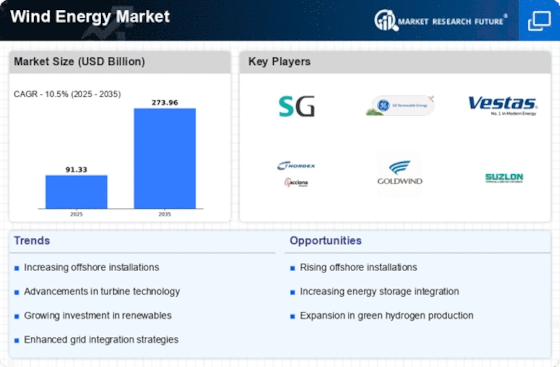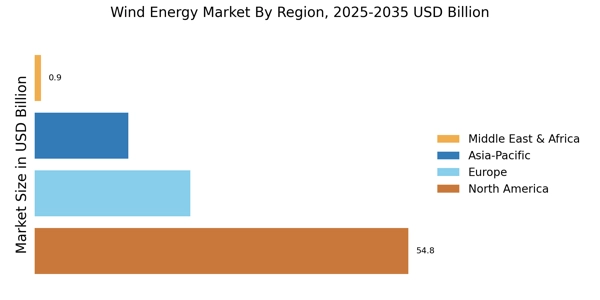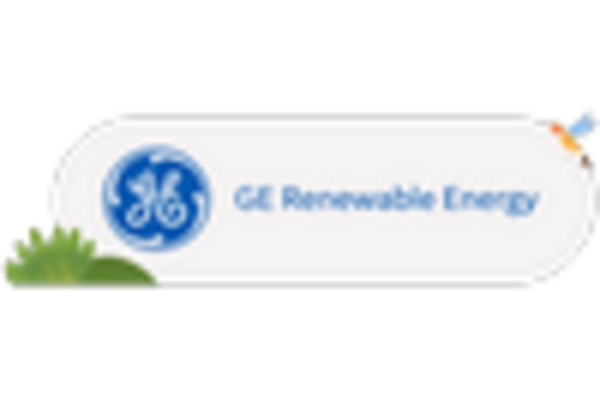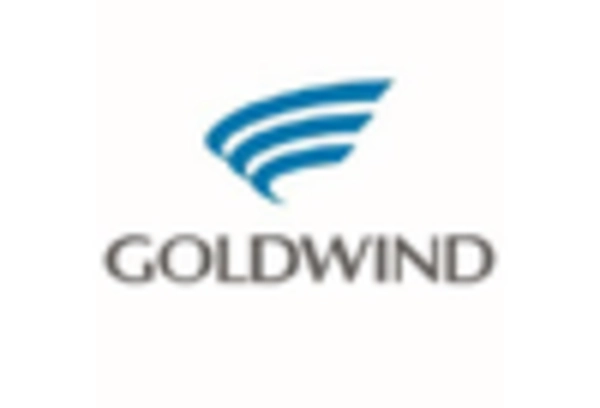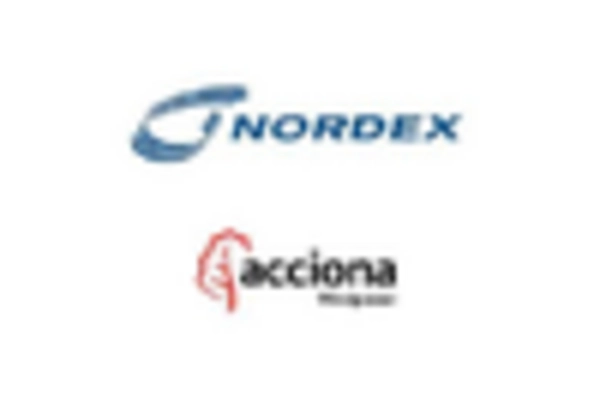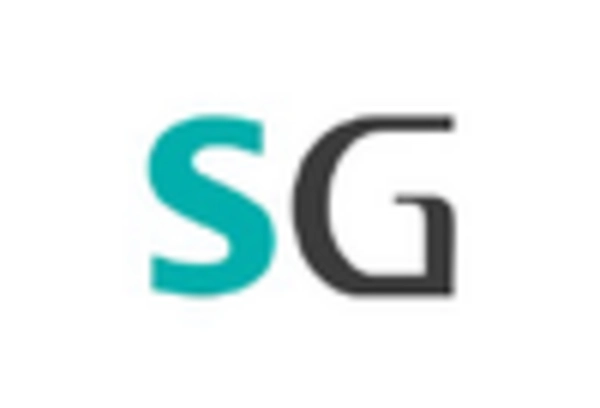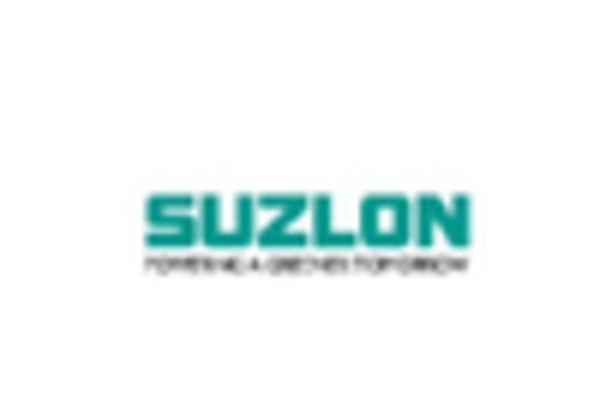Government Incentives and Policies
Government support through incentives and favorable policies is a crucial driver for the Wind Energy Market. Many countries are implementing tax credits, subsidies, and renewable energy mandates to encourage the development of wind energy Market projects. For example, the introduction of feed-in tariffs has proven effective in stimulating investment in wind energy Market infrastructure. As of 2025, it is estimated that government policies will contribute to a 30% increase in wind energy Market capacity worldwide. This regulatory environment not only fosters growth in the Wind Energy Market but also ensures a stable framework for investors, thereby enhancing market confidence.
Corporate Sustainability Initiatives
Corporate sustainability initiatives are emerging as a significant driver for the Wind Energy Market. Many corporations are committing to ambitious sustainability goals, including achieving net-zero emissions by 2050. This commitment often translates into substantial investments in renewable energy, particularly wind energy Market, to meet their operational needs. As of 2025, it is estimated that corporations will account for approximately 20% of new wind energy Market capacity installations. This trend not only bolsters the Wind Energy Market but also encourages innovation and collaboration between businesses and energy providers, fostering a more sustainable energy landscape.
Increasing Demand for Renewable Energy
The Wind Energy Market is experiencing a notable surge in demand for renewable energy sources. This trend is largely driven by the global shift towards sustainable energy solutions, as countries aim to reduce their carbon footprints. According to recent data, the share of renewable energy in the overall energy mix is projected to reach 50% by 2030. This increasing demand is compelling governments and private sectors to invest heavily in wind energy Market projects, thereby expanding the Wind Energy Market. Furthermore, the rising awareness of climate change impacts is prompting consumers to favor clean energy options, which further fuels the growth of the wind energy Market sector.
Technological Innovations in Wind Turbines
Technological advancements are playing a pivotal role in the Wind Energy Market. Innovations in turbine design, materials, and efficiency are enhancing the performance and reliability of wind energy Market systems. For instance, the development of larger and more efficient turbines has led to a significant increase in energy output, with some modern turbines generating over 10 MW of power. This not only improves the economic viability of wind projects but also attracts investment into the Wind Energy Market. Additionally, advancements in predictive maintenance technologies are reducing operational costs and downtime, making wind energy Market a more attractive option for energy producers.
Rising Energy Prices and Energy Security Concerns
The Wind Energy Market is also influenced by rising energy prices and concerns over energy security. As fossil fuel prices fluctuate, the cost-effectiveness of wind energy Market becomes increasingly appealing. In recent years, the levelized cost of energy from onshore wind has dropped by nearly 70%, making it one of the most competitive energy sources available. Additionally, geopolitical tensions and supply chain disruptions have heightened the focus on energy independence, prompting nations to invest in domestic renewable energy sources. This shift not only strengthens the Wind Energy Market but also contributes to a more resilient energy infrastructure.


